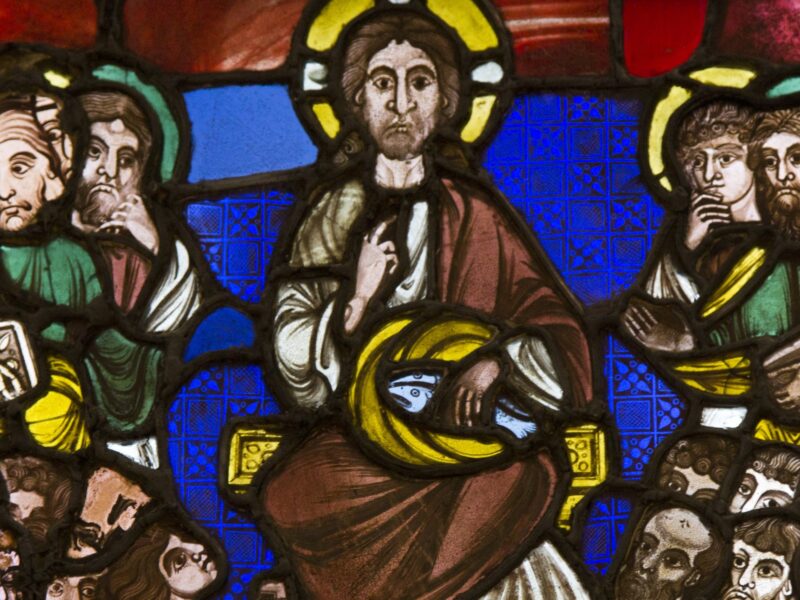
A Disciple
Fourth Sunday of Lent (Laetare Sunday). Fr Duncan Campbell reminds us why we have crucifixes.
In this Gospel we have Jesus talking in an unusual way to an unusual man.
When we hear Jesus speaking, usually to crowds, it is loud and clear, even if he speaks always in parables. These are puzzles, simple stories, that we won’t forget, but we have to grow to understand.
John must have remembered this conversation with such an important person.
The other occasion John remembered was the Last Supper discourse. He had been alerted and alarmed by the talk of betrayal. He remembered every word of it, as Jesus confided in his disciples. This conversation was with an educated Pharisee, member of the Council, the ‘Sanhedrin’, with a Greek name, Nicodemus, which means something like ‘Power to the People’!
Here Jesus is explaining all suffering, and his suffering, as a process. In an incident in the Exodus of the People from Egypt in the desert, many were bitten by what are still called in Africa ‘fiery serpents’. These have to be removed carefully, so that the head doesn’t break off in the wound. The way to do this is to wind the snake’s body on a stick and twist slowly. Moses may have made a medical model of this.
It became a symbol in the People’s memory, of the healing power, through Moses, from God. Jesus means that the whole process is to be done by us, slowly and carefully, copying himself. He is to be held up on the Cross, as a sign of how God’s healing love works. Not to see all this, in faith, is not to see all there is in love.
God loves us in his very real way, and we are to love God in our very real way as a result. We Catholics make our own ‘brazen’ crucifixes to show it. Some ‘Reformers’ could see these only as idols. There was no message of the slow careful process of ‘salvation’ in it for them. Salvation had to be ‘instant’, all done by God. They couldn’t have it involving us. But how else is salvation really done, if not by us, as well as to us? Gently does it.
Jesus makes another point, about loving the daylight. It is an uncanny fact that we humans so often think, and speak. and work, ‘in the dark’. Psychology has pointed this out today; but – darkly. We are not clear, to God, or others, or even to ourselves, as a result. We are often then miserably lonely. We can get so accustomed to this, that we are lost.
We must ‘come out’, to the ‘light’. We must see, and let others see, and admit that God sees, all our awful, and sometimes quite malign, ‘pettiness’. We make this very clear, in going to Confession.
I will confess how I envy Nicodemus, having his face-to-face talk with Jesus. I try to imagine it, in prayer, but have to make up what Jesus would say to my questions. It has occurred to me that this might be a good thing – if I am careful what I imagine Jesus saying. He might not always agree with me, or be on my side, or amused at my naughtiness.
On the other hand, he might be more understanding and helpful than I thought, if I carefully go along with him. I have a lot to help me there – his Gospels, and other Scriptures, as guides. Not to mention the whole Church scene: sacraments; worship; the lives of the saints; sermons; beautiful buildings; works of art; music; crucifixes, of course. These say, ‘Father, forgive’, ‘greater love…’, ‘…commend my spirit’. All these help to show me what I can and must do myself.
Even the sufferings and injustices of this world, that darken any faith in so many, prove the need for me to trust in the other world, that Jesus was always talking about, the Kingdom of God. All I need to bring in is a lively imagination, that feeds the lively faith, hope, and love needed here. And you help, dear people, who made me have to think about it all again, to write this sermon.


